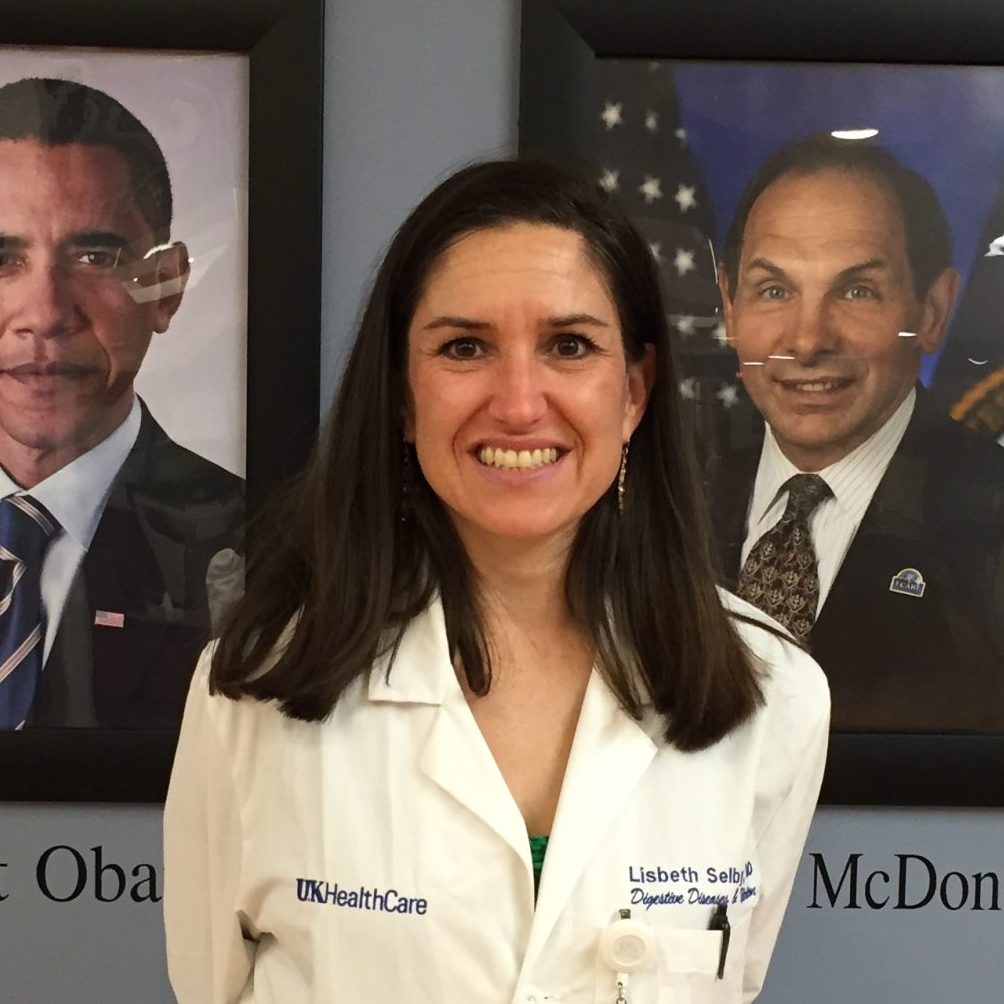I graduated from medical school in 1997 and since 2003 have been an attending gastroenterologist at the University of Kentucky Medical Center and its affiliated Veterans Affairs Medical Center. In this capacity I have performed direct patient care for thousands of inpatients and outpatients a year for almost 20 years.
Outside of medicine, I keep quite busy with high school athletic events, church activities, and several dance groups. I keep close contact with my family in a small Tennessee town, including my 86-year-old mother.
Having introduced myself, I feel compelled to catalog my personal observations during the COVID era since I feel an immense disconnect between the media accounts and the events in my large medical center.
Some would say my personal observations are not valid because they do not represent the hardest hit COVID populations. I would counter that a large tertiary medical center serves the sickest patients in a given geographical area – a number particularly relevant to COVID. And my social and family contacts range from young children to octogenarians. Maybe after reading my account, others will be inspired to comment on the “emperor’s new clothes.”
In my opinion, significant disruptions of typical medical treatment paradigms would be required to justify major societal shutdowns. To that point, during the pandemic I have not seen large numbers of patients being treated in our hospital hallways – at least not more than usual. Lodging of patients in hallways has been routine in the University of Kentucky emergency department for more than a decade.
Needless to say, I have not observed any patients being treated in makeshift structures such as tents or field hospitals. In fact, a large field hospital outfitted in the spring of 2020 from a University of Kentucky athletic training facility was never used to house patients and has now reverted to athletic usage.
The media often cites ICU bed shortages as a pandemic related medical care problem. I have worked in my medical center’s ICU in several capacities since 1997, most recently as an attending gastroenterologist, and can attest to almost daily ICU bed shortages during that entire period. I am not aware of any significant differences related to COVID.
About 10 years ago, I got a call about a family member in Tennessee who needed ICU care but none was available in Tennessee. We hoped we could find an ICU bed at UK, to no avail. Quite typical unfortunately. I wonder why more medical practitioners do not speak up about this phenomenon instead of allowing ICU bed shortages to seem novel and thereby fuel the gloom and doom COVID narrative.
Some would say that critical care equipment shortages are a threat to standard of medical care caused by COVID surges. I would agree in some regards. However, the responses have been maladaptive, especially early on. At my facility there was almost no mention of palliative care as means to relieve some of the equipment shortages, as if it were heresy to consider withdrawing life support from a chronically ill COVID infected nursing home patient.
I have asked myself repeatedly “Where are all the COVID patients the news is talking about?” since I have personally not had much contact with COVID patients. I racked my brain to come up with the following comprehensive list of persons with symptomatic COVID in my personal sphere. I have known one person socially (defined as someone with whom I spoke on a weekly basis) who died from COVID. I have a handful of peripheral, non-elderly acquaintances who have died from COVID – maybe 3 from my hometown, maybe 2 from the Lexington area. I have 1 acquaintance who was hospitalized with COVID.
I peripherally know of a small handful of non-elderly people who were hospitalized with COVID (ex, a friend of my sister in Nashville who I do not know personally). Out of my 2000 or so personal clinic patients from UK and the VA, there is only one that I know has died from COVID. In my capacity as an attending gastroenterologist who manages a hospital consulting service mainly at the Lexington VAMC, I have been consulted on about 10-15 inpatients with active COVID since Dec 2019.
I have treated around the same number for complications related to prolonged COVID hospitalization, mainly related to feeding tube placement. To be fair, my institutions publish hospitalizations by COVID and vaccination status. It would appear that vaccination is protective of severe disease.
Still, there is a disconnect between these numbers and what I personally see that I cannot quite put my finger on. Perhaps it is related to the definition of “case” since all the numbers I tallied above refer to classically symptomatic persons.
I have noted absurd knee jerk reactions that do not seem based on any medical logic. For example, my orthopedic surgeon husband was trained (but never called into action) for the UKMC COVID team in March 2020. I was not “trained” for this task as an experienced internist even though COVID is not mainly a surgical disease. None of my fellow gastroenterologists was “trained.”
In mid March 2020, as the director of the Lexington VAMC endoscopy unit, I met with chief of medicine, chief of infectious disease and infection control officer advocating for cancellation of all non-emergent endoscopy for at least 1 month because gastrointestinal endoscopy generates aerosols.
I made the case for more time to figure out COVID but felt resistance to my suggestions. Maybe it was my imagination. But about 1 month later I was drinking while walking through an empty hallway and was admonished by one of these same individuals to put my mask back up, as if quietly sipping a drink alone were more risky than upper endoscopy in which patients routinely retch and cough, thereby generating potentially infectious aerosols.
There is little interest and therefore little data on natural immunity. I responded to an announcement for a COVID seroprevalence study in spring 2020 in which interested subjects were asked to contact the NIH via email. I sent 2 separate emails about 6 weeks apart with no response.
When I decided to get privately tested for natural COVID antibodies in August 2021 I found incidentally that the Kentucky state department of health was conducting a COVID seroprevalence study in conjunction with Labcorp. I ended up talking to a Labcorp regional manager about the protocol for the project. He could not give me a good answer about why the study was not announced publicly.
I have used N95 masks on and off for years with cases of suspected serious respiratory pathogens, especially tuberculosis. I have been surprised that my colleagues are not asking why regular surgical masks and cloth masks are now recommended so stridently as protection for COVID. If they work so well, why did we go through all the trouble with N95’s during my 20 or so years of medical training/practice, including the annual fit testing? And surely all of us physicians have seen someone’s glasses fog while wearing a mask.
We all studied physics and chemistry and should be able to deduce what is happening. But I seem to be the only one noticing. And if this is not bad enough, I was examining a patient the other day when he coughed about 8 inches from my face through his surgical mask. I felt the moist blast on my face – either through or around my own surgical mask. Any comments, Dr. Fauci?
Clearly I would not expect the lay public to be able to process all of this, which has led us to a sad state of affairs with the mask wars. In the winter of 2020, I needed a few grocery items but realized I forgot my mask as I entered. So instead of going back through slushy parking lot, I pulled my zippered fleece pullover up over my nose. I kept my shoulders shrugged so that it stayed in place. It looked stupid, but I did not want to offend anyone in the store.
The teenage cashier told me she did not feel safe and that I needed to put on a surgical mask. I tried to reason with her and told her I am a physician. That seemed to make it worse. I apologized for making her feel unsafe and switched to a poorly fitting surgical mask to finish checking out. I guess she felt “safe” but ironically ended up being more exposed in the changing process.
My community has reached a place where a physician can be lectured on a medical topic by a teenage girl.
Reporting of possible post vaccination adverse events is patchy and subject to a rosy, “what could go wrong” bias. I favor reporting every serious medical condition occurring post vaccination because the vaccines have been under EUA during most of the usage period. My bias does not apply to COVID vaccines alone. As a prior co-investigator on numerous pharmaceutical sponsored trials, I always erred on the side of reporting every symptom no matter how trivial.
Most recently, in the course of providing feeding tube care for an 83 year old man, the patient’s primary doctor and I were discussing his stroke within 48 hours of the second dose of mRNA vaccine. He was dismissive about reporting due to patient’s prior history of a similar disorder. I ended up reporting the stroke to VAERS. His eventual death was reported to the FDA at requested follow up about 2 months later.
I reported another case of unresolving respiratory symptoms in a 54-year-old post adenovirus COVID vaccination. I was never contacted for follow up on the case. However, she has subsequently died from apparent sudden cardiac issues. This is an unfortunate example of a possible fatal adverse vaccination event which will never be investigated.
I realize that these two cases do not prove severe vaccine reactions. However, neither case was solidly in the grasp of those with the power to group data for safety signals – one almost not reported and the other incompletely reported.
‘The Party told you to reject the evidence of your eyes and ears. It was their final, most essential command.’ (George Orwell, 1984).
Thank you for reading this. Merely putting these thoughts into words has given me renewed strength to believe my own eyes.
Join the conversation:


Published under a Creative Commons Attribution 4.0 International License
For reprints, please set the canonical link back to the original Brownstone Institute Article and Author.









